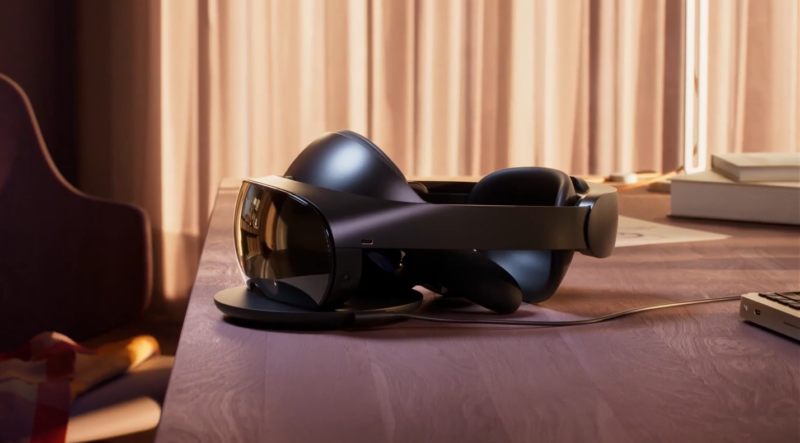
A new report in The Information revealed some new tidbits about Apple's upcoming augmented and virtual reality headset.
Among other things, the report details features that differentiate Apple's headset from Meta's just-announced Quest Pro, which is likely to be the biggest competitor to Apple's device.
Matching prior reports, The Information's article says that the headset will look like a pair of ski goggles. It will be made of "mesh fabrics, aluminum, and glass" and it will be thinner and weigh less than the Quest Pro. The Information's sources didn't specify a weight, but the Quest Pro weighs 722 grams.The new headset will scan a user's irises so they can be recognized and log into their individual accounts the instant they put on the headset. This feature would work for multiple users, making it straightforward to pass the headset from one person to another, for example. Additionally, the iris-scanning tech will be used to authenticate payments. Meta's headset won't feature Iris scanning.
So in other words, it will be the headset's equivalent of Face ID or Touch ID, the biometric authentication methods previously seen in the iPhone, iPad, and Mac.
The headset will also offer accommodations for users who wear glasses. They'll be able to "magnetically clip on prescription lenses inside the headset."
That will not be the only way Apple's headset scans its wearer. It has previously been reported that the device will have 14 cameras. Two, today's report claims, will scan the wearer's legs so the positions of said legs can be accurately portrayed by a virtual avatar.
By contrast, Meta's recently announced Quest Pro headset has four fewer cameras at 10, and it lacks the leg cameras. It's common in 3D telepresence apps to see floating torsos and faces with no legs, but it seems Apple might be looking to get away from that standard.
Apple and Meta are poised for a battle over the mixed-reality space. Meta has been in the VR business for seven years, but Apple has a stronger background in AR thanks to the sensors and developer support on its iPhones and iPads. And while Meta has a significant headstart on the software side for immersive VR, it isn't nearly as experienced as Apple in developing hardware products.
Meta's Quest Pro was first revealed on October 11, and it will be available for purchase for $1,499.99 starting October 25. Apple's headset has faced several delays, but it is now slated to release sometime in 2023 at a higher price.
Article From & Read More ( Apple’s AR/VR headset will scan your iris when you put it on - Ars Technica )https://ift.tt/IDwHOEW
Technology
No comments:
Post a Comment